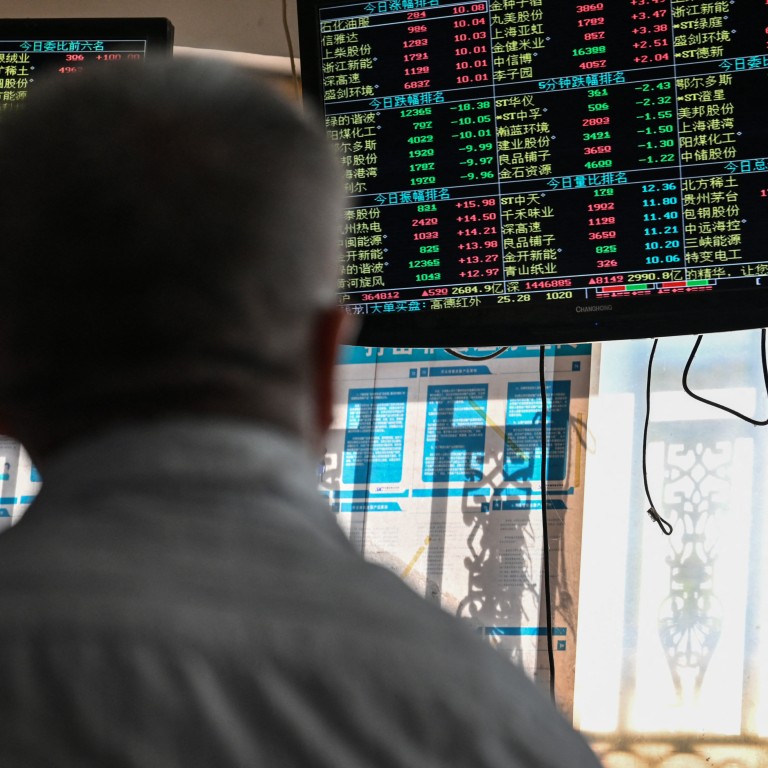
Chinese stocks may be cheap but that doesn’t mean they’re a good buy
- Sentiment has vastly improved, with investors drawn by low prices and assumptions of looser policy
- Yet, Beijing’s regulatory crackdown, the threat of broader contagion from struggling developers and other factors should give them pause
Sentiment towards mainland Chinese equities has undergone a perceptible shift in the past few months. Following a period of extreme bearishness which caused the benchmark CSI 300 index of large Shanghai- and Shenzen-listed shares to lose 18 per cent between February 9 and July 27, the mood among investors has improved noticeably.
Markets have seized on a change in tone on the part of policymakers. Of particular significance to investors has been the government’s frequent use of the word “stability” when setting the policy direction for the next few years.
The perceived shift comes when Chinese equities are trading at discounts close to record highs versus their global peers. The forward price-to-earnings ratio – a popular valuation tool – of the CSI 300 stands at 15, while its equivalent for the MSCI China Index has dropped to 12.4. The benchmark S&P 500 index, on the other hand, stands at a lofty 21.2, not far below its level at the height of the dotcom bubble in the late 1990s.
In China’s beaten-down equity markets, most of the bad news is priced in. This provides significant scope for shares to rally, provided investors believe more easing measures are forthcoming.
Still, just because Chinese equities are attractively priced doesn’t necessarily mean they are a buy. First, while the main worry in US and European stock markets is the risk of a policy mistake, in China it is the entire policy regime that poses a threat to sentiment.
The threat of broader contagion from the liquidity crisis at China Evergrande Group is reason enough to be cautious on Chinese stocks. That the main source of concern right now is the financial position of Shimao Group Holdings, a higher-quality developer that has an investment-grade credit rating, demonstrates how far the turmoil has spread.
Shanghai bourse asks Shimao to explain US$259 million related party deal
Second, it is unlikely that an easing of monetary and fiscal policy will be sufficient to allay fears over Beijing’s relentless and broadening regulatory crackdown.
In September, Goldman Sachs predicted that policy in China would combine regulatory tightening with an easing of the government’s macroeconomic stance as growth continues to slow. It described the new policy mix as “micro takes, macro gives”.
The problem, however, is that macro is unlikely to give enough while micro will keep taking. Investors who are enticed by China’s cheap stocks should bear this in mind.
Nicholas Spiro is a partner at Lauressa Advisory


